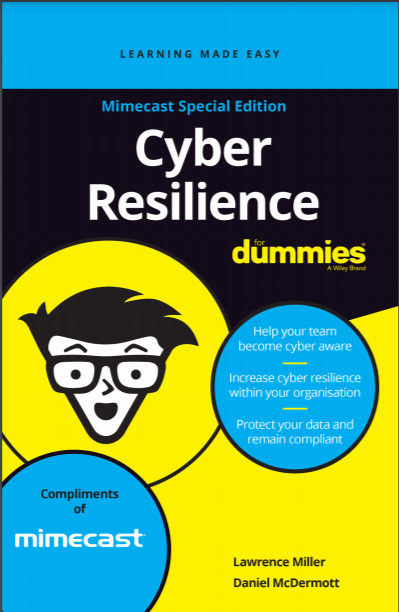Google launches new bug bounty platform
Vulnerability hunters will be able to improve their skills through the newly launched Bug Hunter University


Google has announced the launch of a new bug bounty platform that will make it easier for vulnerability hunters to submit issues.
Available under bughunters.google.com, the platform brings together all of the tech giant’s vulnerability reward programmes (VRP) – Google, Android, Abuse, Chrome, and Play – with hunters able to submit issues using a single intake form.
Moreover, the new platform will provide more opportunities for interaction with other hunters through gamification, including awards and badges for certain bug-reporting achievements.
Google has also improved its VRP leaderboards, which will now be “more functional and aesthetically pleasing”, as well as show the best hunters per country, making it easier to use the results to boost a CV when applying for a job in tech.
The new platform also provides greater emphasis on research and education, making it easier for hunters to publish their bug reports in order to share their knowledge. Hunters will also be able to improve their skills through the newly-launched Bug Hunter University, which includes courses on how to submit a successful vulnerability report.
Research papers on the security of open source will be eligible for a reward, just like open source software patch submissions, while hunters improving security in open source programmes will be eligible to apply for a grant to better secure their own projects.
RELATED RESOURCE

Commenting on the announcement, Google VRP technical programme manager, Jan Keller, said that when Google launched its “very first VRP” over a decade ago, no one knew “how many valid vulnerabilities – if any – would be submitted on the first day”.
Get the ITPro daily newsletter
Sign up today and you will receive a free copy of our Future Focus 2025 report - the leading guidance on AI, cybersecurity and other IT challenges as per 700+ senior executives
“Everyone on the team put in their estimate, with predictions ranging from zero to 20. In the end, we actually received more than 25 reports, taking all of us by surprise,” he added.
Three years later, the programme was expanded to include open source as well as Google Android and Apache.
“Since its inception, the VRP programme has not only grown significantly in terms of report volume, but the team of security engineers behind it has also expanded – including almost 20 bug hunters who reported vulnerabilities to us and ended up joining the Google VRP team. That is why we are thrilled to bring you this new platform, continue to grow our community of bug hunters and support the skill development of up-and-coming vulnerability researchers,” said Keller.
Having only graduated from City University in 2019, Sabina has already demonstrated her abilities as a keen writer and effective journalist. Currently a content writer for Drapers, Sabina spent a number of years writing for ITPro, specialising in networking and telecommunications, as well as charting the efforts of technology companies to improve their inclusion and diversity strategies, a topic close to her heart.
Sabina has also held a number of editorial roles at Harper's Bazaar, Cube Collective, and HighClouds.
-
 CyberOne appoints Microsoft’s Tracey Pretorius to its advisory board
CyberOne appoints Microsoft’s Tracey Pretorius to its advisory boardNews The threat intelligence leader will provide strategic guidance to CyberOne’s executive team
By Daniel Todd
-
 CISA issues warning in wake of Oracle cloud credentials leak
CISA issues warning in wake of Oracle cloud credentials leakNews The security agency has published guidance for enterprises at risk
By Ross Kelly
-
 Hackers are targeting Ivanti VPN users again – here’s what you need to know
Hackers are targeting Ivanti VPN users again – here’s what you need to knowNews Ivanti has re-patched a security flaw in its Connect Secure VPN appliances that's been exploited by a China-linked espionage group since at least the middle of March.
By Emma Woollacott
-
 Broadcom issues urgent alert over three VMware zero-days
Broadcom issues urgent alert over three VMware zero-daysNews The firm says it has information to suggest all three are being exploited in the wild
By Solomon Klappholz
-
 Nakivo backup flaw still present on some systems months after firms’ ‘silent patch’, researchers claim
Nakivo backup flaw still present on some systems months after firms’ ‘silent patch’, researchers claimNews Over 200 vulnerable Nakivo backup instances have been identified months after the firm silently patched a security flaw.
By Solomon Klappholz
-
 Everything you need to know about the Microsoft Power Pages vulnerability
Everything you need to know about the Microsoft Power Pages vulnerabilityNews A severe Microsoft Power Pages vulnerability has been fixed after cyber criminals were found to have been exploiting unpatched systems in the wild.
By Solomon Klappholz
-
 Vulnerability management complexity is leaving enterprises at serious risk
Vulnerability management complexity is leaving enterprises at serious riskNews Fragmented data and siloed processes mean remediation is taking too long
By Emma Woollacott
-
 A critical Ivanti flaw is being exploited in the wild – here’s what you need to know
A critical Ivanti flaw is being exploited in the wild – here’s what you need to knowNews Cyber criminals are actively exploiting a critical RCE flaw affecting Ivanti Connect Secure appliances
By Solomon Klappholz
-
 Researchers claim an AMD security flaw could let hackers access encrypted data
Researchers claim an AMD security flaw could let hackers access encrypted dataNews Using only a $10 test rig, researchers were able to pull off the badRAM attack
By Solomon Klappholz
-
 A journey to cyber resilience
A journey to cyber resiliencewhitepaper DORA: Ushering in a new era of cyber security
By ITPro